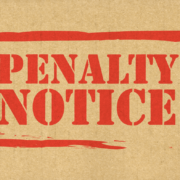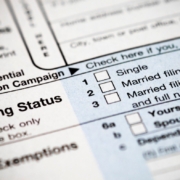WHAT TO DO IF YOU RECEIVE A DREADED IRS LETTER
Article Highlights:
- CP2000 Series Notices
- Automated
- Frequently Issued In Error
- What You Should Do
When the IRS thinks it has found an issue with your tax return, it will contact you via mail with a CP series notice (most commonly CP2000). Please note that the IRS will never call or e-mail you initially about a tax delinquency. This is a trick used by scammers that has become quite prevalent.
Most commonly, these notices will include a proposed tax due and any interest or penalties. The notice will include an explanation of the examination process and how you can respond.
These automated notices are sent out year-round and are quite common. As the IRS tries to close the tax gap, it has become more aggressive in its collection efforts. In addition, with some taxpayers using low-quality tax mills or do-it-yourself software, there has been an increase in the number of notices sent over the years because of preparer error. A missed check box here, a misunderstanding of a credit there, overlooked income—it all adds up. One of the largest tax software providers for self-preparers even needed to hire a huge new workforce to help its users deal with the increase in notices caused by novice taxpayers trying to do their own tax returns.
This automated process starts when the IRS matches what you reported on your tax return to data reported by third parties. When this information does not agree, the automated collection effort begins.
But don’t panic – These notices often include errors. But you do need to realize that not responding by the 30-day deadline can have significant repercussions. The first thing to determine is which type of notice you have received. A CP2000 notice is quite different than many of the other CP notices that deal with identify theft, audit correspondence, earned income credit and much more. Also realize that a CP2000 notice includes a proposed, and almost always unfavorable, change to your tax return, and it is giving you an opportunity to dispute the proposed change. Procrastinating or ignoring the notice will only cause the IRS to ratchet up its collection efforts and make it increasingly difficult to dispute the proposed adjustment.
Sometimes the IRS will be correct. You may have overlooked a capital gain, income from a second job, etc. Quite frequently, the IRS is incorrect simply because its software isn’t sophisticated enough to pick up all the information on your attached schedules.
The first thing you should do is contact this office as quickly as possible so we can review the notice to determine whether it is correct and quickly respond to it.








Leave a Reply
Want to join the discussion?Feel free to contribute!